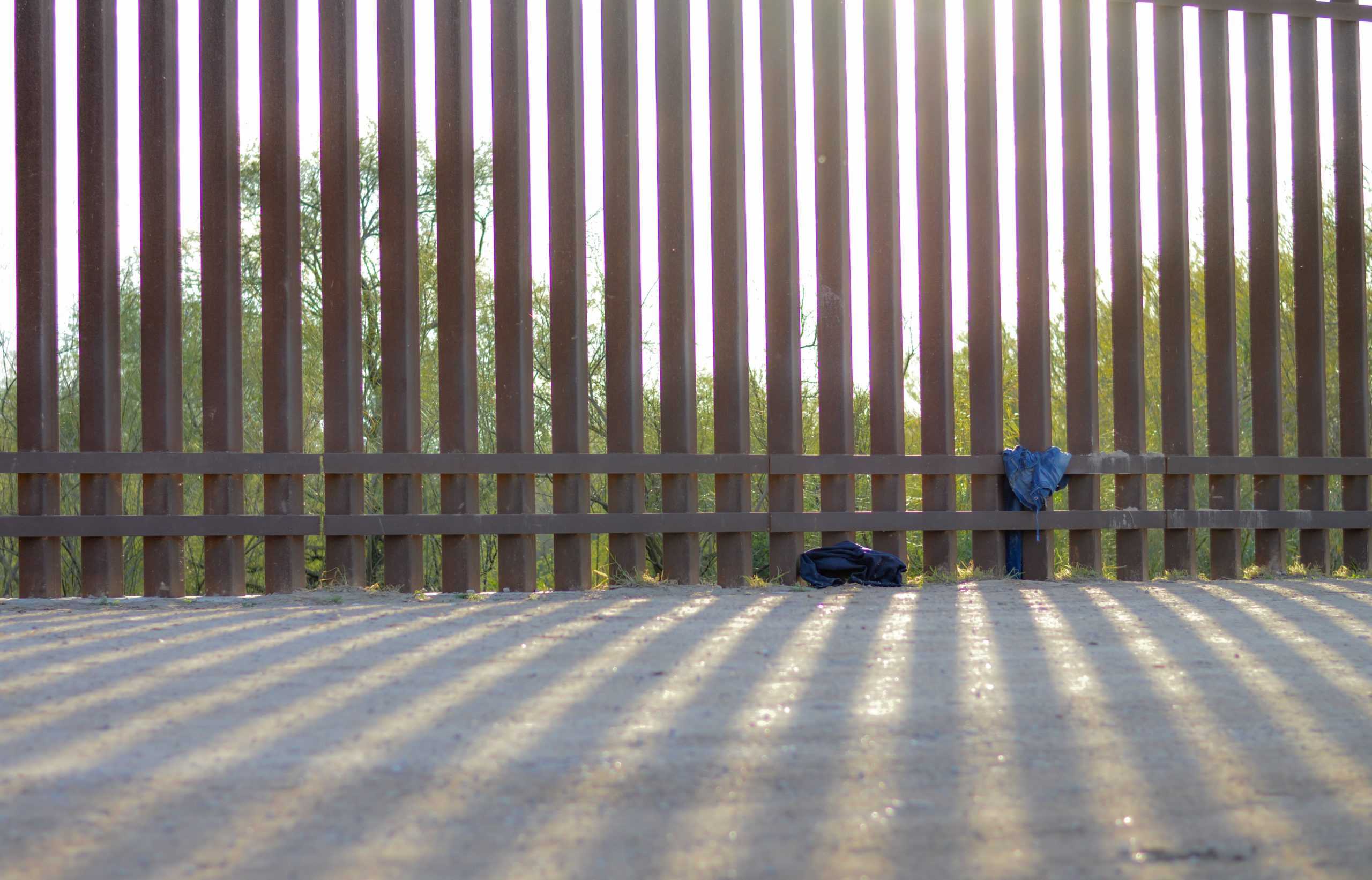Travel over the U.S.-Mexico border has been a prevalent topic of political discussion in recent years, elevated in the public consciousness by President Donald Trump’s push for enhanced security measures to prevent illegal immigration.
A recent viral video of a woman on a Greyhound bus being removed by Customs and Border Protection officers who boarded the bus in Fort Lauderdale, Florida posed a question: What are people’s legal rights if asked for identification? More so, what are the gray areas in the legal system when living in a border zone?
Abigail Ramos is a psychology senior from Progreso, Texas — part of a collection of towns that compose the valley about 30 minutes outside of Brownsville, Texas along the U.S.-Mexico border.
In comparison to videos of border control and Immigration and Customs Enforcement (ICE), Ramos said she hasn’t seen as many situations in her town but has had experiences with unusual border control actions.
“Since I do live super close to the border, we just go have lunch literally in Mexico and then we’ll come back,” Ramos said. “Just like 30 minutes, whatever, just go eat, come back. That’s usually what we do on the weekends, stuff like that.”
Although she does not have an issue crossing back to the U.S., she knows people who struggle to come back across the border due to a variety of concerns from security.
For example, Ramos’ roommate, Spanish senior Anna Valdez, went across the border with her family for lunch during spring break in 2017. Her father, who lives and works in the U.S. with a visa, was detained and was not released until late January of this year. She said it was because of a red flag that came up from years ago.
“That’s actually crazy,” said Huyen Pham, a professor of law at Texas A&M University School of Law with a concentration in immigration law. “Crazy in the sense that if it’s a valid work visa, that should be able to be validated, checked pretty quickly … They certainly have the authority to check paperwork and if they have concerns about fraud, for example, or somehow if the documents are invalid they have the authority to deny you entry. I just can’t imagine why it would take that long.”
Similarly, Ramos’ maternal uncle and aunt, who live in Michigan, came to visit them and stayed in Mexico. Her aunt was not allowed to cross back into the U.S. for an extended period of time.
“Whenever they came to visit us they had to stay over there in Mexico,” Ramos said. “It took her probably six months, five months, to get her papers settled and stuff and she was able to stay here legally.”
According to the American Immigration Council, expedited removal, which was created in 1996, refers to the legal authority given to even low-level immigration officers to order the deportation of some non-U.S. citizens without any of the due-process protections granted to most other people, such as the right to an attorney and to a hearing before a judge.
“If they think you don’t have documents or that your documents are fraudulent they can always allow you voluntary departure or they can place in what is called expedited removal, where you have very limited release and you’re basically placed and sent back to your country of origin,” Pham said.
If a person is trying to enter or has entered the United States and has an expired visa, Pham said most immigration advocates would recommend not showing it.
“You’re basically giving them proof that you were born outside of the United States, which is the first thing they have to prove in order to deport you,” Pham said. “It does prove who you are, but for immigration purposes it’s not particularly helpful I wouldn’t think.”
Andres Enriquez is an English senior from San Juan, Texas — about 15 minutes from the Pharr-Reynosa International Bridge. He said the border patrol and state troopers are permanent features of the community.
“Border patrol is so prevalent that they get discounts at all the local restaurants, like the mom and pop diners,” Enriquez said.
His mother was brought over the border as a child by way of his grandmother paying $100 per child to legally cross over into the U.S in the late 1960s. At the time, she had six children, which later grew to 10.
“At the time, a mother of six brought over one child at a time through proper documentation, the proper course of action. It is doable,” Enriquez said. “At the time, $100 was a lot.”
Although Enriquez would now be the third generation with legal documentation, when he and his family traveled to Arizona a few years ago, they were approached by border patrol in a mall and asked for proof of documentation.
“We were walking around and I’m light complected and so is my mom, but my dad and my aunt and my uncle are all dark complected, so they [border patrol officers] said ‘Do you all mind showing us your citizenship,’ and my mom was like ‘Oh yeah, here it is’ and they said ‘Oh alright, have a great day,’” Enriquez said.
During the 2016 presidential elections, Trump’s border wall and security promise was a significant component of his campaign. Ramos said the type of actions she has witnessed so far did not become as constant until after Trump was elected president.
“I was in college already whenever he got elected, so whenever I went home to visit it was a lot more than it had been whenever I hadn’t left,” Ramos said.
Ramos said she doesn’t think it’s fair for families to be separated due to over-exaggerated border security, especially in cases such as her roommate’s father.
“I don’t think it’s fair that we’re ripping families apart,” Ramos said. “Like my roommate, she would cry constantly, like literally every day because her dad didn’t deserve it, and a lot of people’s families don’t deserve it.”
Realities of life on the U.S.-Mexico Border
February 11, 2018
Photo by Courtesy
Concerns over immigration and security policies have impacted life for many border communities.
0
Donate to The Battalion
$2790
$5000
Contributed
Our Goal
Your donation will support the student journalists of Texas A&M University - College Station. Your contribution will allow us to purchase equipment and cover our annual website hosting costs, in addition to paying freelance staffers for their work, travel costs for coverage and more!
More to Discover











